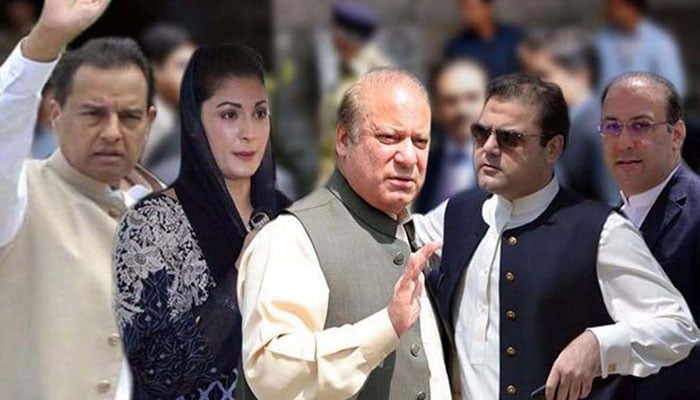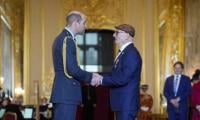NAB unimpressed with evidence: Matrix spies took £500,000 from Broadsheet to investigate Nawaz Sharif
LONDON: The Broadsheet LLC hired a detective agency, Matrix Research Limited, to investigate Nawaz Sharif and eight members of his family at a total cost of around £500,000, but the information gathered about the Sharif family did not impress the National Accountability Bureau (NAB) investigators who were looking for seriously actionable evidence of wrongdoing and illicit wealth, court exchanges demonstrate.
Sir Anthony Evans noted in his judgment that the whole story of Broadsheet and NAB agreement started in the late 1999 when Nawaz Sharif was deposed and Pervez Musharraf took over with zeal to clean up Pakistan and repatriate the alleged stolen wealth.
Within months of Pervez Musharraf coming to power, the then NAB head General (retd) Syed Amjad signed Assets Recovery Agreement (ARA) with Broadsheet LLC in mid-2000 and within weeks, Broadsheet’s Jerry James employed Matrix Reproach Limited, who claimed to be assets recovery specialists.
The News contact Robert Byrne this week with a list of questions, the co-founder and Managing Director of Matrix, but he declined to offer comment, saying: “We're unable to offer any further information as we have a strict confidentiality policy with all of our clients.”
However, this correspondent spoke to a former retired spy who once worked for Matrix and had knowledge of what happened when Matrix investigated the Sharifs and other ‘targets’.
In his witness statement before the London High Court, Robert Byrne said Matrix was engaged by Broadsheet to conduct an investigation on its behalf into the financial affairs of Nawaz Sharif and other named “targets” under the ARA terms.
Sir Anthony Evans said that Nawaz Sharif and eight members of his family were registered targets from an early date and financial affairs of Nawaz Sharif and his family were investigated in the UK.
A Matrix employee Joe Forbes visited Pakistan in Nov 2000 to meet NAB officials and Robert Byrne visited Pakistan in February 2001 and again in May 2001.
During the May 2001 visit, Robert Byrne gave a presentation to dozens of NAB officials during a dedicated session on five high-profile targets with focus on Nawaz Sharif. Robert Byrne told the judge in 2015 he felt that during the presentation session in Islamabad that the Pakistani “officials’ response to my presentation was muted, even disinterested” and not many questions were asked of him about the investigations that Matrix had conducted. He did not hear from NAB again and Broadsheet did not ask him to carry out any more work. The court heard that Matrix was paid around £500,000 for the services by Broadsheet’s Jerry James.
Officials at the NAB were alerted when they found out that Broadsheet had hired another company – Matrix Research Limited - to do the job it promised to have expertise in doing and the frustration of that time became evident in the witness statement of General Amjad who told Sir Anthon Evans in 2015 that Broadsheet failed to provide the “type of proofs of foreign assets Pakistan needed” and Pakistani officials realised soon that “Broadsheet seemed to have grossly misrepresented and exaggerated their competencies and resources with respect to their asset recovery programme”.
The court papers show that Robert Byrne made no wild claims and acted professionally but the kind of information Matrix gathered through deep search and intelligence-led investigations was not of much help to NAB officials who were looking for damning evidence such as expensive new properties, secret bank accounts, money trails and hidden wealth – the kind of proofs that would be good politically as well as for the prosecution purpose and exactly what Trouvons and Broadsheet had promised through flashy brochures and in meetings to persuade Pakistani officials to sign the deal.
An investigator who worked on the brief at that time shared that Pakistani officials did not look impressed with the information they were given because there expectations were quite high and they were looking for concrete evidence of corruption and money laundering – and none was there.
When Nawaz Sharif, the registered target, left for Saudi Arabia from prison, Broadsheet became concerned - and almost convinced – that there is a financial settlement between Sharifs and Pervez Musharraf and therefore it should get its share of 20 per cent on the total gain, based on the agreed terms of the Broadsheet Agreement. Jerry James for Broadsheet wrote to Pakistan and received a reply from General Maqbool, the then NAB chairman, that it would receive a share of any assets recovered. General Maqbool wrote to Broadsheet on Feb 24, 2011 asking Broadsheet to put the matter “on hold” until outstanding issues were resolved within the Pakistan government. Pakistani officials have said they had realised by then that Broadsheet was not providing any concrete help in tracing assets and Broadsheet became suspicious that Pakistan was cutting under the table deals and keeping it out of the loop.
Broadsheet claimed that General Maqbool had undertaken to make a “token payment of some £500K” but when General Munir Hafiez became chairman in October 2001, he refused to contemplate any payments. According to Sir Anthony’s judgment, NAB in 2001 made no secret of its view that its obligation was limited to assets recovered from ‘outside Pakistan’ only and that’s where the dispute started.
Lawyers representing Pakistan at the arbitration hearing did not make any criticism of the work done by Matrix and the Broadsheet judge noted that Robert Byrne “was an impressive witness and I accept his evidence without hesitation”.
Neither Broadsheet LLC, which won nearly $29 million from Pakistan, nor Matrix Research Limited, was able to find any new asset belonging to Nawaz Sharif family or proof of wrongdoing. The Pakistani authorities knew long before NAB or Broadsheet were formed that the Sharif family owned and controlled four Avenfield flats in Central London.
-
 Justin Baldoni Objects To Removing Taylor Swift's Name From Case
Justin Baldoni Objects To Removing Taylor Swift's Name From Case -
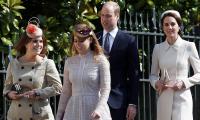 Princess Eugenie, Beatrice Warned About Royal Titles After They Turn Down Prince William's Request
Princess Eugenie, Beatrice Warned About Royal Titles After They Turn Down Prince William's Request -
 Samsung One UI 8.5 Adds Fully Customisable Unlock Animations
Samsung One UI 8.5 Adds Fully Customisable Unlock Animations -
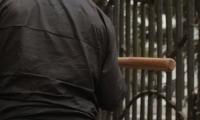 Injured By Bullets, New York Father-son Duo Beat Alleged Gunman With A Bat
Injured By Bullets, New York Father-son Duo Beat Alleged Gunman With A Bat -
 Annular Solar Eclipse 2026: Here's Everything To Know About The ‘ring Of Fire’
Annular Solar Eclipse 2026: Here's Everything To Know About The ‘ring Of Fire’ -
 Blake Lively Gives Up Hopes Of Taylor Swift Reconciliation?
Blake Lively Gives Up Hopes Of Taylor Swift Reconciliation? -
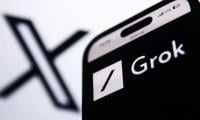 Advocacy Groups Take Aim At Elon Musk, Urging Google, Apple To Remove X, Grok
Advocacy Groups Take Aim At Elon Musk, Urging Google, Apple To Remove X, Grok -
 BAFTA Nominees For 2026 Rising Star Award Revealed: See Full List
BAFTA Nominees For 2026 Rising Star Award Revealed: See Full List -
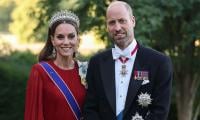 Kate Middleton 'quietly And Carefully' Planning Prince William's Coronation
Kate Middleton 'quietly And Carefully' Planning Prince William's Coronation -
 'Glee' Star Slams Hilary Duff’s Husband Over 'petty' Remarks About THIS Actress
'Glee' Star Slams Hilary Duff’s Husband Over 'petty' Remarks About THIS Actress -
 Chinese Parents Turn To AI Tutors To Ease Homework Stress
Chinese Parents Turn To AI Tutors To Ease Homework Stress -
 Fire Crews Bring Massive Wolverhampton Factory Blaze Under Control
Fire Crews Bring Massive Wolverhampton Factory Blaze Under Control -
 Britney Spears Obsessed With Prince William And Harry?
Britney Spears Obsessed With Prince William And Harry? -
 World’s First Ice Archive Created To Preserve Fast-melting Glaciers’ Secrets
World’s First Ice Archive Created To Preserve Fast-melting Glaciers’ Secrets -
 Amazon To Appeal Against Italian Antitrust Fine Despite Major Reduction
Amazon To Appeal Against Italian Antitrust Fine Despite Major Reduction -
 Meghan Markle, Harry Land In New Trouble In US After Major Move
Meghan Markle, Harry Land In New Trouble In US After Major Move
